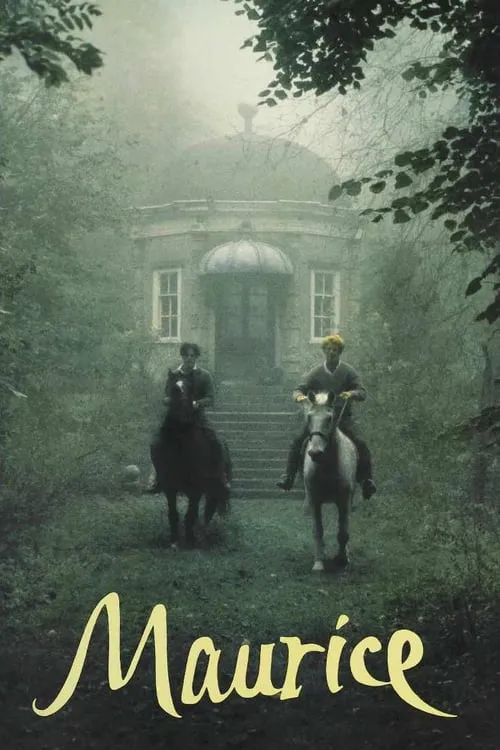Maurice

พล็อต
Maurice is a 1987 British drama film directed by James Ivory, based on the novel of the same name by E.M. Forster. The film follows the life of Maurice Hall, a young man who struggles to reconcile his same-sex desires with the societal norms of Victorian England. The story takes place in the early 20th century and revolves around Maurice's journey of self-discovery, his complex relationships with his family and lover, and the challenges he faces in a society that strictly prohibits same-sex relationships. The film opens with Maurice, a bright and cheerful young man, returning home from boarding school. He soon falls in love with his friend, Clive Durham, a fellow student who shares Maurice's passion for the outdoors and the arts. However, their relationship is soon discovered by their school authorities, and Clive advises Maurice to leave him, as he is unwilling to challenge the societal norms that prohibit same-sex relationships. Maurice is heartbroken but tries to move on with his life. He goes to Cambridge University, where he becomes increasingly disillusioned with the strict rules and societal expectations. He becomes infatuated with Alec Scudder, a young working-class man who is employed as a gamekeeper at the college. Maurice and Alec develop a close relationship, but their social differences and the fear of being discovered make their relationship fraught with tension. The film explores the complexities of human relationships, love, and identity in a society that is rigid and oppressive. Maurice's relationships with Clive and Alec are central to the story, and the film shows how they struggle to reconcile their desires with the societal norms that surround them. The film's portrayal of the repressive atmosphere of the time is vividly captured through the use of beautiful cinematography, exquisite costumes, and a poignant soundtrack. One of the strengths of the film is its nuanced exploration of the themes of love, class, and identity. The film shows how the strict social hierarchies of the time affected people's relationships and identities, particularly those who were considered "different." The film's portrayal of the tensions between the upper and working classes is also noteworthy, as it highlights the difficulties faced by people who fall outside of the social norms. The film's performances are also noteworthy, particularly those of James Wilby as Maurice and Hugh Grant as Clive. James Wilby brings a vulnerable and sensitive quality to the role of Maurice, capturing his inner turmoil and emotional struggles. Hugh Grant gives a nuanced and engaging performance as Clive, capturing the complexity of his character and his struggles with his own desires. The film's ending is poignant and haunting, as Maurice and Alec find love and acceptance in the midst of great uncertainty. The film ends on a hopeful note, suggesting that even in a society that is repressive and oppressive, love and acceptance can exist. The film's conclusion is also a commentary on the power of love to transcend societal norms and expectations. Overall, Maurice is a beautifully crafted film that explores the complexities of human relationships, love, and identity in a repressive society. The film's portrayal of the societal norms and expectations of the time is vividly captured through the use of cinematography, costumes, and a poignant soundtrack. The performances of the lead actors are also noteworthy, particularly James Wilby's nuanced and sensitive portrayal of Maurice. The film's ending is poignant and haunting, suggesting that even in a society that is rigid and oppressive, love and acceptance can exist.
วิจารณ์
คำแนะนำ




